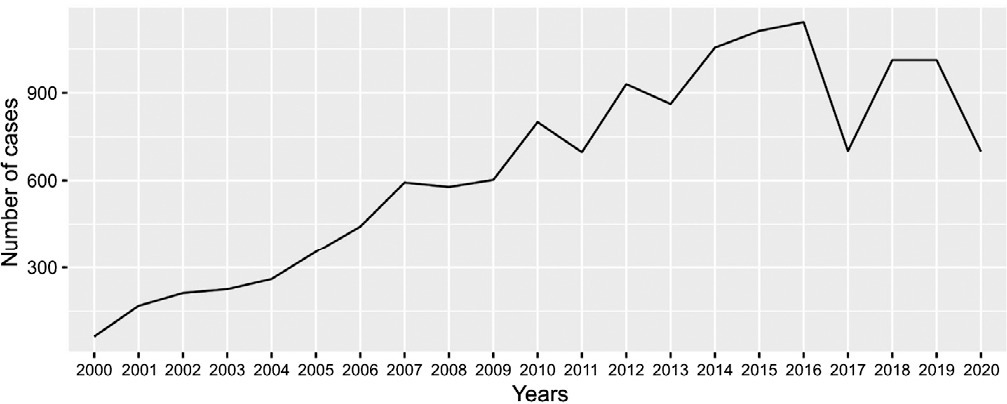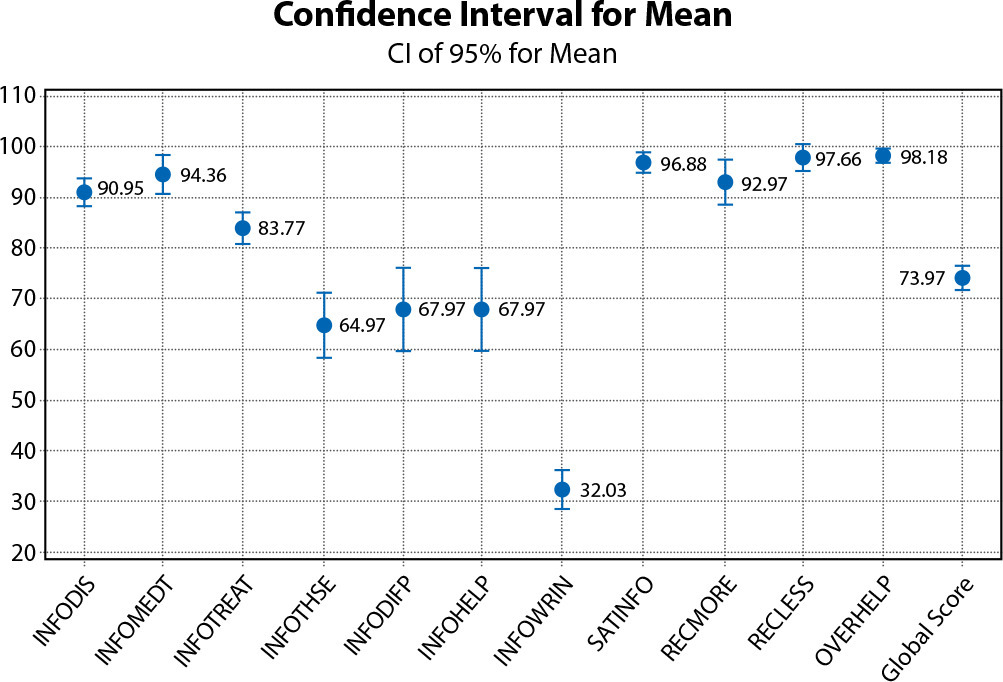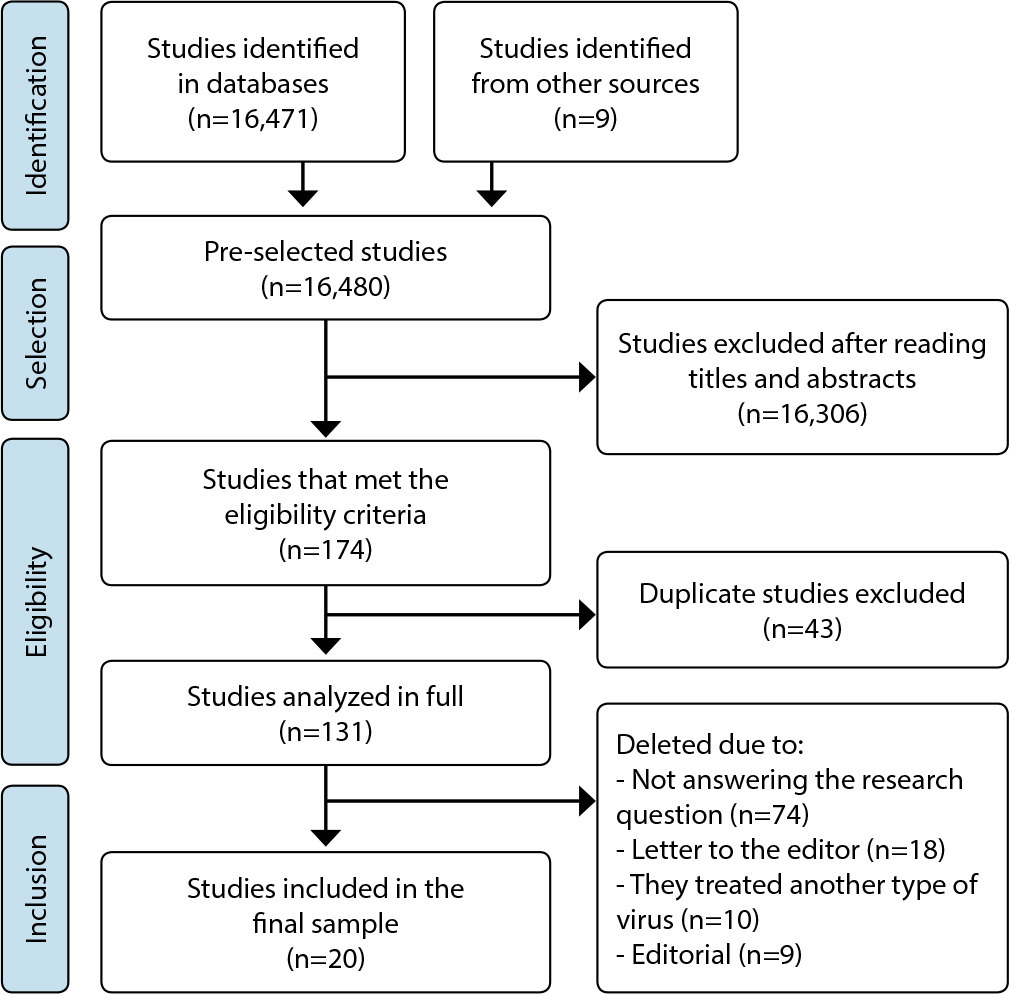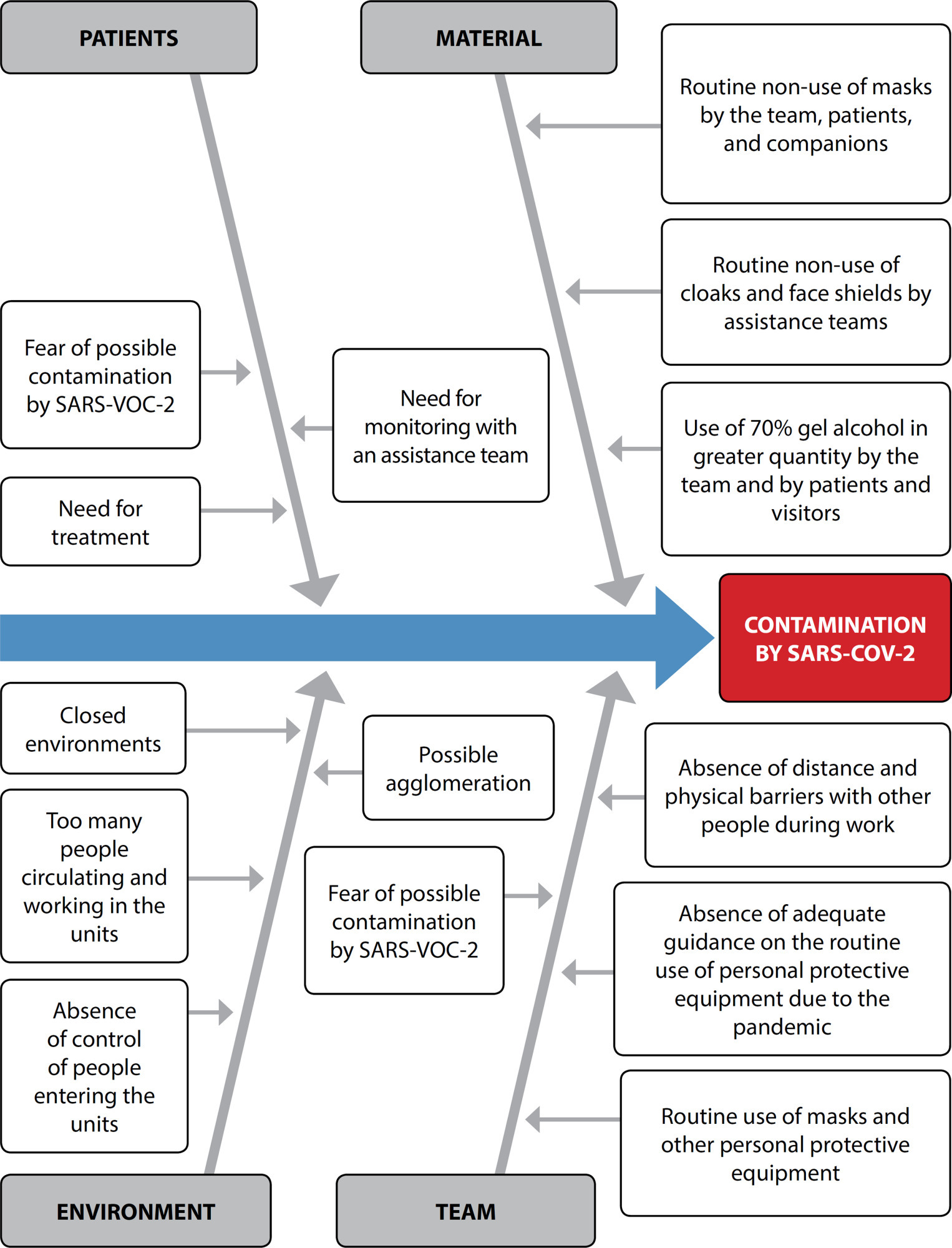-
ORIGINAL ARTICLE07-29-2024
Completeness of variables in Hospital-Based Cancer Registries for prostatic malignant neoplasm
Revista Brasileira de Enfermagem. 2024;77(3):e20230467
Abstract
ORIGINAL ARTICLECompleteness of variables in Hospital-Based Cancer Registries for prostatic malignant neoplasm
Revista Brasileira de Enfermagem. 2024;77(3):e20230467
DOI 10.1590/0034-7167-2023-0467
Views0See moreABSTRACT
Objectives:
to analyze the completeness of variables from Hospital-Based Cancer Registries of cases of prostate neoplasm in the Oncology Care Network of a Brazilian state between 2000 and 2020.
Methods:
an ecological time series study, based on secondary data on prostate cancer Hospital-Based Cancer Registries prostate. Data incompleteness was classified as excellent (<5%), good (between 5%-10%), fair (10%-20%), poor (20%-50%) and very poor (>50%), according to the percentage of lack of information.
Results:
there were 13,519 cases of prostate cancer in the Hospital-Based Cancer Registries analyzed. The variables “family history of cancer” (p<0.001), “alcoholism” (p<0.001), “smoking” (p<0.001), “TNM staging” (p<0.001) had a decreasing trend, while “clinical start of treatment” (p<0.001), “origin” (p=0.008) and “occupation” (p<0.001) indicated an increasing trend.
Conclusions:
most Hospital-Based Cancer Registries variables showed excellent completeness, but important variables had high percentages of incompleteness, such as TNM and clinical staging, in addition to alcoholism and smoking.

-
ORIGINAL ARTICLE05-03-2024
Cancer patient satisfaction regarding the quality of information received: psychometric validity of EORTC QLQ-INFO25
Revista Brasileira de Enfermagem. 2024;77(1):e20230358
Abstract
ORIGINAL ARTICLECancer patient satisfaction regarding the quality of information received: psychometric validity of EORTC QLQ-INFO25
Revista Brasileira de Enfermagem. 2024;77(1):e20230358
DOI 10.1590/0034-7167-2023-0358
Views0See moreABSTRACT
Objectives:
to psychometrically validate the European Organization for Research and Treatment of Cancer Core Quality of Life Questionnaire EORTC QLQ-INFO25 instrument and identify the domains that influence patients’ perception of the information received.
Methods:
a cross-sectional methodology with cancer patients in a Brazilian philanthropic hospital institution. Sociodemographic and clinical instruments, EORTC QLQ-C30, EORTC QLQ-INFO25 and Supportive Care Needs Survey - Short Form 34 were used. Analysis occurred using Cronbach’s alpha coefficients, intraclass correlation, test-retest and exploratory factor analysis.
Results:
128 respondents participated. Cronbach’s alpha coefficient was 0.85. The test-retest obtained p-value=0.21. In the factor analysis, one item was excluded. Satisfaction with the information received was 74%, with three areas with averages below 70%. In open-ended questions, there was a greater desire for information.
Conclusions:
validity evidence was obtained with instrument reliability, consistency and stability. Respondents expressed satisfaction with the information received.

-
ORIGINAL ARTICLE04-14-2023
Validity study of educational technology on gynecological high dose rate (HDR) brachytherapy
Revista Brasileira de Enfermagem. 2023;76:e20220232
Abstract
ORIGINAL ARTICLEValidity study of educational technology on gynecological high dose rate (HDR) brachytherapy
Revista Brasileira de Enfermagem. 2023;76:e20220232
DOI 10.1590/0034-7167-2022-0232
Views0See moreABSTRACT
Objective:
to construct and validate an educational booklet on high dose rate gynecological brachytherapy (HDR) for women with gynecologic cancer.
Methods:
a methodological study, with the construction and validity of a booklet based on the Doak, Doak and Root theoretical-methodological framework. Content and appearance validity was guided by the Delphi technique, by 11 judges, selected using Jasper’s criteria. Afterwards, clinical validity was carried out with the target population.
Results:
the booklet, built from evidence from an integrative review, validated with judges, obtained an overall CVI of 0.98. After clinical validity with 27 women, it presents 24 sheets with illustrations produced by a graphic designer, subdivided into topics: gynecological system anatomy and gynecological cancer epidemiology, gynecological brachytherapy definition, therapeutic steps, approach to side effects and management, and two pages for notes.
Conclusions:
the booklet has validity for use in HDR gynecological brachytherapy treatment.

-
Cancer symptom clusters: from the lab bench to clinical practice
Revista Brasileira de Enfermagem. 2022;75(5):e2022v75n5inov
Abstract
Cancer symptom clusters: from the lab bench to clinical practice
Revista Brasileira de Enfermagem. 2022;75(5):e2022v75n5inov
DOI 10.1590/0034-7167-2022v75n5inov
Views0See moreABSTRACT
Objective:
to present and discuss the advancement of science in symptom management through research involving oncological symptom clusters (OSC).
Method:
a reflective study, supported by the scientific literature on OSC.
Results:
five key points are crucial to advancing the science of symptom management through research involving OSC: definition of OSC characteristics; underlying mechanisms and priority symptom clusters; OSC measurement; targeted and personalized interventions; new analytical strategies.
Final considerations:
a better understanding of the complex connections between different systems and biobehavioral aspects in patients, especially in the field of oncology nursing, is urgent. The study of these interactions has become increasingly promising and emerging for oncology nursing, since therapeutic interventions, whose target is the neuroimmunoendocrine axis, are relevant for personalized care, translating into greater scientific and nurse autonomy to care for patients.
-
REVIEW09-19-2022
Onco-hematological patient care in times of COVID-19: a scoping review
Revista Brasileira de Enfermagem. 2022;75:e20210892
Abstract
REVIEWOnco-hematological patient care in times of COVID-19: a scoping review
Revista Brasileira de Enfermagem. 2022;75:e20210892
DOI 10.1590/0034-7167-2021-0892
Views0See moreABSTRACT
Objective:
to identify and map health care aimed at onco-hematological patients in times of Coronavirus 2019.
Methods:
this is a scoping review, anchored in the Joanna Briggs Institute theoretical framework, registered in the Open Science Framework, with searches carried out in June 2021, through searches in the databases.
Results:
a final sample consisting of 20 articles was obtained, with emphasis on general care, treatment and stem cell donation. The most reported care was the use of telemedicine, screening for Coronavirus Disease 2019, compliance with prevention practices and, in case of infection, postponing procedures.
Conclusions:
the study gathered the main evidence on care aimed at treating these patients in times of a pandemic. Such measures help in the clinical management with the objective of proceeding with treatment amidst the injuries caused, thus minimizing possible complications.

-
ORIGINAL ARTICLE08-30-2021
Historical aspects in pain management in palliative care in an oncological reference unit
Revista Brasileira de Enfermagem. 2021;74(5):e20200761
Abstract
ORIGINAL ARTICLEHistorical aspects in pain management in palliative care in an oncological reference unit
Revista Brasileira de Enfermagem. 2021;74(5):e20200761
DOI 10.1590/0034-7167-2020-0761
Views0See moreABSTRACT
Objective:
Describe the actions implemented for pain management in palliative care oncology and analyze the contribution of Hospital do Câncer IV, as a reference unit at the National Cancer Institute.
Methods:
Study of the history of the present time, whose sources were written documents and interviews with five participants. The collection took place from February to June 2018. The analysis of the written sources took place through internal and external criticism of the documents, considering their chronology and theme.
Results:
Professionals contributed with actions for pain management in palliative oncology care: in discussions and final drafting of ordinances, as rapporteurs at national and international events, in the elaboration of humanization conducts and systematization of assistance in addressing pain.
Final considerations:
These actions favored assistance in palliative oncology care at various levels of health care for patients and families, with greater technical and scientific recognition for all.
-
EXPERIENCE REPORT05-21-2021
Management of coping with the risks of COVID-19 in an onco-hematological outpatient clinic: an experience report
Revista Brasileira de Enfermagem. 2021;74:e20201080
Abstract
EXPERIENCE REPORTManagement of coping with the risks of COVID-19 in an onco-hematological outpatient clinic: an experience report
Revista Brasileira de Enfermagem. 2021;74:e20201080
DOI 10.1590/0034-7167-2020-1080
Views0See moreABSTRACT
Objective:
to describe the experience of a private outpatient network for hematology and oncology treatment in the adoption of management tools to face the risk of contamination by SARS-CoV-2.
Method:
an experience report on the use of a root cause analysis method to identify potential risks of contamination by COVID-19 among patients and employees. Through the risks identified through the Ishikawa Diagram, we built an action plan, linked to the 5W2H tool, for planning and decision-making implemented.
Results:
the number of attendances in person and people circulating in the units was reduced, protective distance measures and new protection barriers were fundamental to control the risks of spreading COVID-19 in patients and employees.
Final considerations:
the management tools served as a valuable tool in the construction of measures, making the measures in question more clearly and applicable.





